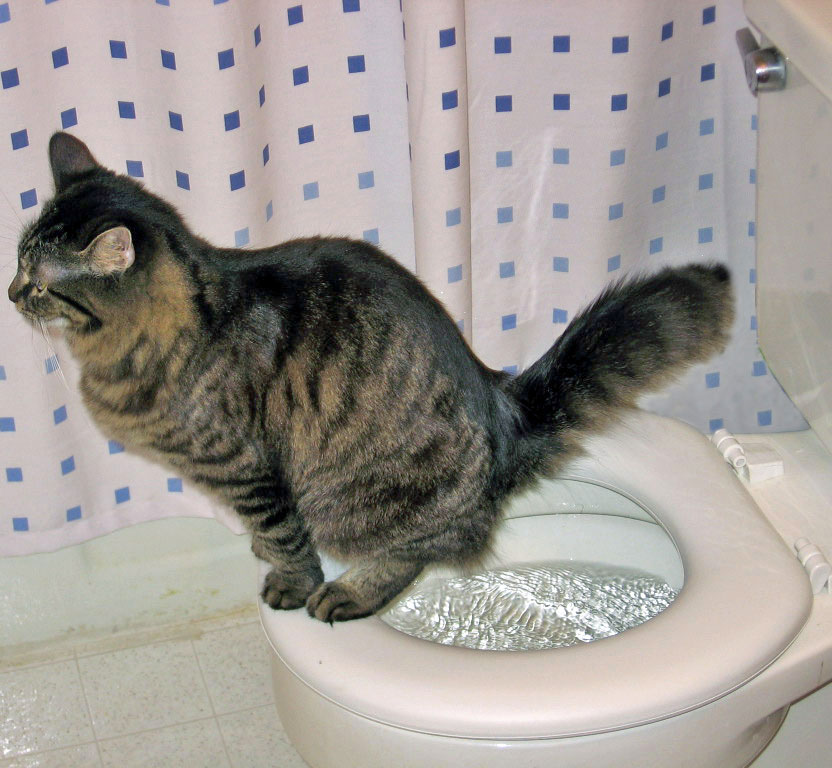Why Flushing Cat Poop Down Your Toilet Is Bad - Tips for Correct Handling
Why Flushing Cat Poop Down Your Toilet Is Bad - Tips for Correct Handling
Blog Article
Each person will have their own opinion on the subject of Don’t flush cat feces down the toilet.

Introduction
As feline proprietors, it's necessary to bear in mind how we deal with our feline close friends' waste. While it might appear practical to purge feline poop down the commode, this practice can have harmful repercussions for both the setting and human health and wellness.
Alternatives to Flushing
The good news is, there are much safer and a lot more accountable ways to dispose of cat poop. Think about the following options:
1. Scoop and Dispose in Trash
One of the most typical method of throwing away feline poop is to scoop it right into an eco-friendly bag and toss it in the garbage. Be sure to make use of a dedicated clutter scoop and get rid of the waste immediately.
2. Usage Biodegradable Litter
Opt for naturally degradable feline litter made from products such as corn or wheat. These trashes are environmentally friendly and can be safely gotten rid of in the garbage.
3. Bury in the Yard
If you have a lawn, take into consideration hiding pet cat waste in an assigned area away from vegetable yards and water resources. Make sure to dig deep adequate to stop contamination of groundwater.
4. Mount a Pet Waste Disposal System
Purchase an animal garbage disposal system specifically developed for feline waste. These systems use enzymes to break down the waste, decreasing odor and environmental impact.
Health and wellness Risks
Along with environmental concerns, flushing feline waste can also position health risks to people. Cat feces might include Toxoplasma gondii, a parasite that can cause toxoplasmosis-- a potentially severe illness, specifically for expecting ladies and individuals with damaged immune systems.
Ecological Impact
Flushing feline poop presents hazardous pathogens and parasites into the water, posturing a substantial threat to aquatic ecosystems. These impurities can adversely affect marine life and compromise water quality.
Conclusion
Liable pet ownership prolongs beyond providing food and sanctuary-- it additionally includes appropriate waste monitoring. By avoiding purging feline poop down the commode and choosing different disposal approaches, we can reduce our environmental impact and shield human health.
Why Can’t I Flush Cat Poop?
It Spreads a Parasite
Cats are frequently infected with a parasite called toxoplasma gondii. The parasite causes an infection called toxoplasmosis. It is usually harmless to cats. The parasite only uses cat poop as a host for its eggs. Otherwise, the cat’s immune system usually keeps the infection at low enough levels to maintain its own health. But it does not stop the develop of eggs. These eggs are tiny and surprisingly tough. They may survive for a year before they begin to grow. But that’s the problem.
Our wastewater system is not designed to deal with toxoplasmosis eggs. Instead, most eggs will flush from your toilet into sewers and wastewater management plants. After the sewage is treated for many other harmful things in it, it is typically released into local rivers, lakes, or oceans. Here, the toxoplasmosis eggs can find new hosts, including starfish, crabs, otters, and many other wildlife. For many, this is a significant risk to their health. Toxoplasmosis can also end up infecting water sources that are important for agriculture, which means our deer, pigs, and sheep can get infected too.
Is There Risk to Humans?
There can be a risk to human life from flushing cat poop down the toilet. If you do so, the parasites from your cat’s poop can end up in shellfish, game animals, or livestock. If this meat is then served raw or undercooked, the people who eat it can get sick.
In fact, according to the CDC, 40 million people in the United States are infected with toxoplasma gondii. They get it from exposure to infected seafood, or from some kind of cat poop contamination, like drinking from a stream that is contaminated or touching anything that has come into contact with cat poop. That includes just cleaning a cat litter box.
Most people who get infected with these parasites will not develop any symptoms. However, for pregnant women or for those with compromised immune systems, the parasite can cause severe health problems.
How to Handle Cat Poop
The best way to handle cat poop is actually to clean the box more often. The eggs that the parasite sheds will not become active until one to five days after the cat poops. That means that if you clean daily, you’re much less likely to come into direct contact with infectious eggs.
That said, always dispose of cat poop in the garbage and not down the toilet. Wash your hands before and after you clean the litter box, and bring the bag of poop right outside to your garbage bins.
https://trenchlesssolutionsusa.com/why-cant-i-flush-cat-poop/

As an avid reader about Can You Flush Cat Poo or Litter Down the Toilet?, I think sharing that editorial was a great idea. Are you aware of somebody else who is fascinated with the topic? Feel free to share it. Thanks a lot for your time. Don't hesitate to check up our website back soon.
Schedule Here Report this page